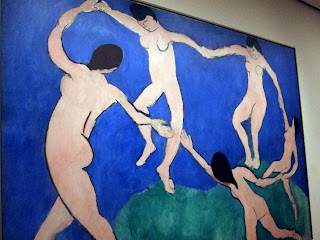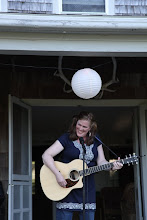It's complicated writing about poetry matters that have taken place in this city that loves poetry and its poets. Poets are everywhere in this town: hanging by their thumbs from the Hot Metal Bridge, floating in rubber inner tubes down the lazy Ohio, racing antique cars in Schenley Park, walking their dogs way down in the fields of Dogville in Frick Park, buying paint at Home Depot in S'liberty. Getting drunk at Dee's and shooting a game of pool. This very morning, one probably road her bicycle past you, helmet snuggly on her head, inhaling the exhaust fumes of cars and busses on Fifth Avenue. Another is sitting next to you munching popcorn in the Manor Theater watching "I Am Love." A third just bought a cup of coffee and a bunch of tulips over on Penn Avenue in the Strip. Yes, in Pittsburgh, poets and chances for poetic encounters are everywhere. Eating pancakes. Buying underwear. Mailing bills. I could write volumes about all the wealth poetry has brought me in terms of the poets I've met, the poetry students who have enriched me and uplifted me, the friends I've met who take language so seriously and so playfully at once. Pittsburgh's well kept secret: This city is chock-full of incredible poets and poetry.
So, here on Nostalgia Thursday, how do I begin to talk about all the amazing poetry adventures and meetings and misadventures I've had in this old steel town over the years? I'll start with this one story, a favorite memory because of how joyfully absurd it was:
Story 1: In Which Li Young-Lee and his Mentor, Gerald Stern attend a party at the House of Poet Lynn Emanuel after a very touching joint reading at Carnegie Mellon University And Gerald Stern gets Soaked.
The reading that night, at Carnegie Mellon, was a memorable one. Li-Young Lee and his mentor, Gerald Stern, bantered back and forth, obviously happy to be sharing a stage, taking turns singing one another's praises. Lee read one of my favorite of his poems "From Blossoms," and Gerald Stern read, among others, his roadkill poem, which always shocked me (in the best possible way) with how it travels from something so grotesque to something so beautifully moving. I was sitting among poet friends. Li Young Lee seemed so happy, even humbled by reuniting with his old teacher from his years as a Pitt undergraduate student. We all applauded heartily at the reading's end.
I was wild about Li Young Lee's book Rose at the time--its lyricism and narratives that dove to such impossible depths. And how every poem, no matter what the subject matter, became infused with the intractable loss of his revered father
After the reading, Lynn invited friends and graduate students back to her home for wine, crackers and cheese, light refreshments. That evening, when I walked through Lynn's front door, Li Young Lee was standing smack in the middle of the hallway. In my excitement, I thrust my copy of Rose at him.
"Wonderful reading tonight! Would you mind signing my book?"
Li Young-Lee smiled, "What's your name?" He graciously thumbed to the title page of the book, looked down, did a double-take, looked at me hard, then peered at the page once more. Finally he locked eyes with me for a good minute, as if to ascertain how dangerous I really was and said,
"I already did sign your book." He glanced again at his inscription: "In 1992."
And in case I wasn't able to grasp my mistake, he added quietly,
"Five years ago."
My face was ablaze. Anyone else would have apologized, grabbed the book, scrambled quickly into the madding crowd and hid themselves there. For reasons I cannot explain, I decided to play it off:
"Sure, I know you did. Can you sign it again? "
Li Young-Lee cleared his throat, took a step back, then another, wielded the book between us like an accusatory finger. He debated for a minute, pushed his black hair out of his eyes. But finally, he did sign it again, writing "To Sharon: The second time sweeter." (Which was both a charming and a funny thing to write when he was looking at me like he was sure he'd met his poetry stalker.)
But, that wasn't the end of the odd and wonderful evening. And by the way, I love having a twice-signed copy of Rose and have often thought how fun it would be to continue to have him sign the same book over the course of years. Though, he might, after a while, hire a bodyguard or serve me with a restraining order and nobody wants that .... ;-)
Thirty minutes later, I was happily party-chattering, buzzed on my second glass of red wine. I moved into the kitchen looking for something to snack on. The kitchen was packed. Rising above all the noise was Lynn's wonderful rousing laugh. There was a line curving around the kitchen table. I got in line behind Gerald Stern. Li Young Lee got in line behind me. Gerald offered me a plate. Again, I thanked them both for such a wonderful reading. Behind us was the kitchen island and my friend G. was at the sink, trying to figure out how to turn on the very sleek and modern faucet. I was joking with her about it: "maybe it's voice activated?" Gerald was bent over, forking lox onto his plate. I put a few crackers and some slices of cheddar cheese on my own. Gerald bent over further, his glasses sliding down his nose, as he peered into the large bowl of indeterminate salad (?) in front of him. Just at that moment, poor G., still wrestling with the faucet, suddenly managed to not only turn the water on, but simultaneously to unscrew the entire faucet from the sink.
Water was everywhere at once. People shrieked, ran out of the way. A veritable geyser, two feet in the air fountained right behind Gerald Stern's back. The back of his rumpled tan suit jacket ran in rivers down the creases, turned dark brown. Water spilled onto his pants, his shoes. What amazed me, as the rains came pouring down, is that Stern continued to spoon a little bit of this and a little bit of that onto his plate. My long hair was dripping. G. stood behind the sink, horror-stricken, the silver faucet held out in her hand like the wrung neck of a swan. It all happened so fast. I looked from the oblivious Stern to the horrified G. and started to laugh. I laughed until tears came to my eyes, till my stomache started to ache. Water continued to spray down on all of us.
At that moment, Li Young-Lee sprang into action and pushed past me and my laughter, waving a fat wad of paper napkins in his hands. He patted his mentor's soaked back and baggy pants and dabbed with a napkin at the back of Stern's neck. Something about this surreal interchange (theater of the absurd!!) made me laugh even harder. Lee leveled me with a gaze:
"You could help!"
I grabbed some napkins and struggled to control myself. Then, I pat Gerald Stern with my handful of napkins right down his back. This sent me off into more laughter. My mind kept chanting, "you're patting Gerald Stern! you're patting Gerald Stern!"
All of this happened in a matter of minutes. I have no memory of who finally turned off the water or screwed the faucet back in place. I do know that G., after apologizing 1,000 times, quietly slunk out of the party, never to find this story amusing. I also know that when I looked over at Gerald Stern about 10 minutes later, he was happily sitting, in his shirtsleeves, finishing off his food. I don't know where his soggy jacket ended up. And as for Li Young Lee? Let's just say that for the rest of that evening, I gave him a very, very wide berth.
NOTE: I still love Li Young Lee's books. He's an incredible reader should you ever get a chance to hear him. I've taught Rose many, many times over the years at the University of Pittsburgh and was always happy to see students walk off newly engaged by his poems...
Here's his poem "From Blossoms"
From Blossoms
BY LI-YOUNG LEE
From blossoms comes
this brown paper bag of peaches
we bought from the boy
at the bend in the road where we turned toward
signs painted Peaches.
From laden boughs, from hands,
from sweet fellowship in the bins,
comes nectar at the roadside, succulent
peaches we devour, dusty skin and all,
comes the familiar dust of summer, dust we eat.
O, to take what we love inside,
to carry within us an orchard, to eat
not only the skin, but the shade,
not only the sugar, but the days, to hold
the fruit in our hands, adore it, then bite into
the round jubilance of peach.
There are days we live
as if death were nowhere
in the background; from joy
to joy to joy, from wing to wing,
from blossom to blossom to
impossible blossom, to sweet impossible blossom.




 Dave was staring upwards from the truck's interior.
Dave was staring upwards from the truck's interior.

 What a trajectory! From singing dinosaur songs to classes of three and four year old to teaching aspiring young adults to write poetry-----"I'm going to the zoo, zoo, zoo; how about you, you you; YOU can come too, too, too, Oh we're going to the zoo, zoo, zoo!!" Indeed!
What a trajectory! From singing dinosaur songs to classes of three and four year old to teaching aspiring young adults to write poetry-----"I'm going to the zoo, zoo, zoo; how about you, you you; YOU can come too, too, too, Oh we're going to the zoo, zoo, zoo!!" Indeed!








